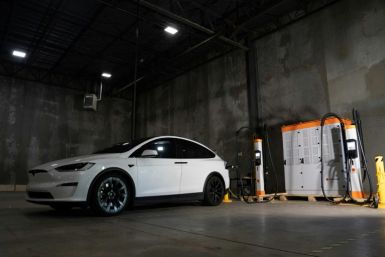Nissan and Hyundai profits soar as U.S. and China seen slowing
Nissan Motor Co <7201.T> and Hyundai Motor Co's <005380.KS> forecast-beating quarterly profits may prove tough to match in the second half as robust sales in China and elsewhere start to slow.
A patchy recovery in the U.S. market has become one of the biggest concerns for the auto industry, especially Japanese automakers, which rely heavily on the region for its profits.
Nissan, Japan's No.3 automaker, reported its strongest quarterly operating profit in more than two years as sales surged, but it left its cautious guidance unchanged amid an increasingly murky outlook for demand.
Hyundai, the world's No.5 car maker with affiliate Kia Motors Corp <000270.KS>, beat forecasts with a record quarterly profit, helped by strong sales of models such as the Sonata sedan and Santa Fe sports utility, as well as weakness in the Korean won.
South Korea's top automaker plans to launch a revamped version of its best-selling compact car Elantra in August and the Azera sedan later this year.
The launch of new models will only have a limited effect in the short term, and we cannot see it as a solution for worsening demand, said Jung Sangjin, an asset manager at Dongbu Securities in Seoul.
Nissan, held 43 percent by France's Renault SA , has outperformed the industry's growth especially in China, the world's biggest market, so far this year thanks to a model line-up more suited to local tastes.
Nissan is also aiming to boost its global market share this year with sales growth of about 8 percent to 3.8 million units, driven by the revamped Micra/March subcompact, Juke crossover, and other new models including the much-hyped Leaf electric car.
First-quarter results for Nissan are good and our recovery is vigorous and ahead of schedule, CEO Carlos Ghosn said in a statement. Despite uncertainty surrounding the ongoing global economic recovery, raw material costs and exchange rate volatility, we are confident to achieve our 2010/11 forecast.
Nissan shares, down about 15 percent this year, closed up 1.8 percent before the results, while shares of Hyundai fell over 2 percent at one point and closed down 0.7 percent.
Since the beginning of the year, Hyundai shares have risen about 20 percent, versus a 5 percent gain in the wider market.
After a series of bullish earnings, market focus now is whether the second quarter might have been the peak, Oh Hyun-Seok, a market analyst at Samsung Securities in Seoul, said of Hyundai's earnings.
CHINA KEY
Under Chief Executive and Chairman Chung Mong-Koo, Hyundai was one of the rare winners in the global financial crisis, winning market share with its lineup of cheap, cleverly marketed cars and SUVs.
Both Nissan and Hyundai have done well in China, but the economy there is slowing and industry sales growth is falling. Other big markets are also struggling.
Global car sales in the second half are seen slowing slightly from the first half due to fiscal crises in some European countries, the end of governments' incentives on new car purchases and higher interest rates, Hyundai executive Vice President Lee Won-hee told investors.
Hyundai reported a 71 percent rise in net profit to 1.39 trillion won ($1.17 billion) in the second quarter, compared with a consensus estimate of 1.1 trillion won. Quarterly operating profit was a record 863.3 billion won, beating forecasts.
Nissan confirmed it expects operating profit to grow 12 percent to 350 billion yen ($4 billion) in the year to March, lower than the consensus forecast of 401 billion yen in a survey of 22 analysts by Thomson Reuters I/B/E/S.
April-June operating profit rose to 167.9 billion yen from 11.6 billion yen a year ago and beating the average 124.7 billion yen estimated by six analysts surveyed by Reuters.
($1=1185.0 Won=87.47 Yen)
(Additional reporting by Miyoung Kim, Chyen Yee Lee and Suh Kyung-min; Editing by Lincoln Feast)
© Copyright Thomson Reuters 2024. All rights reserved.











